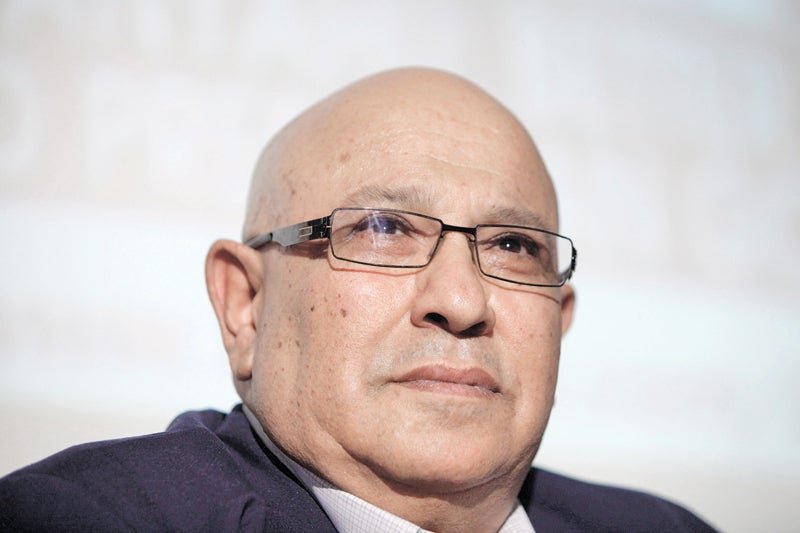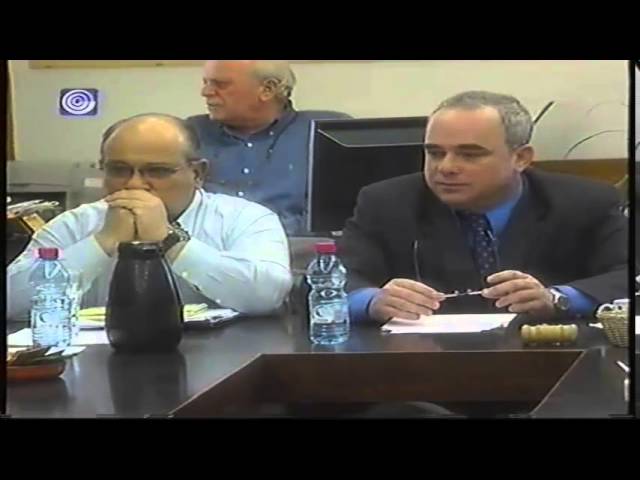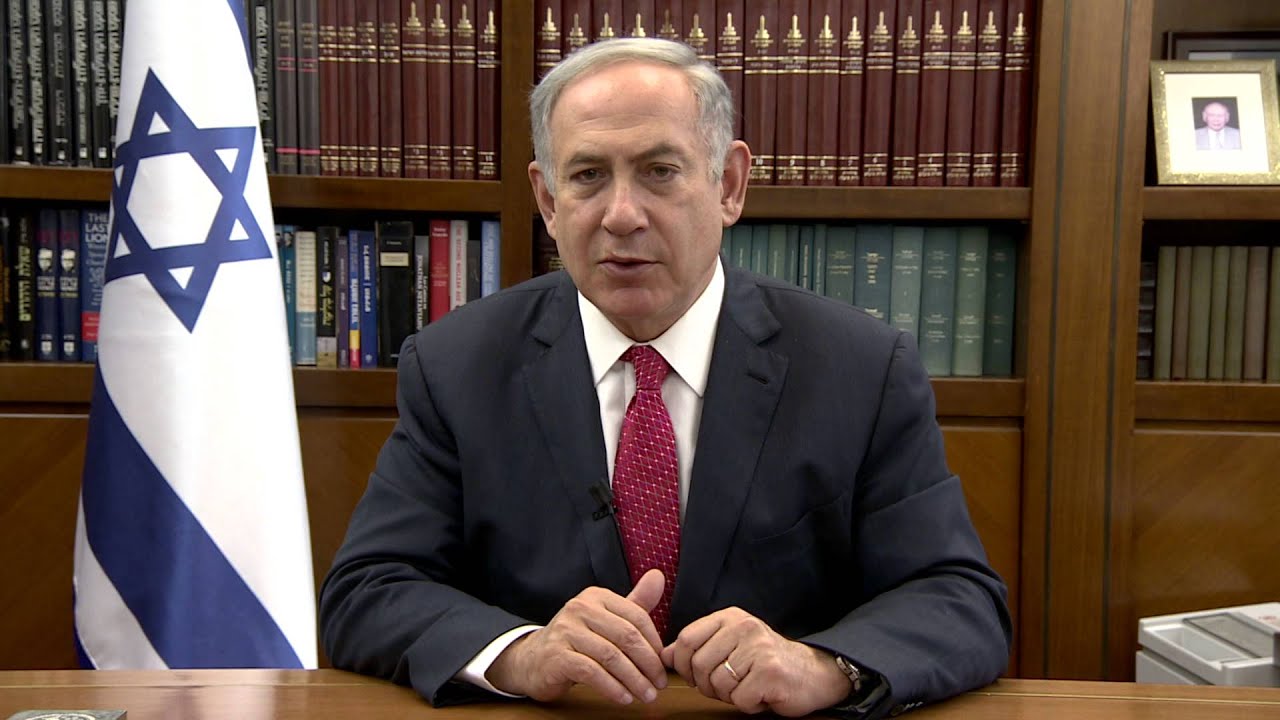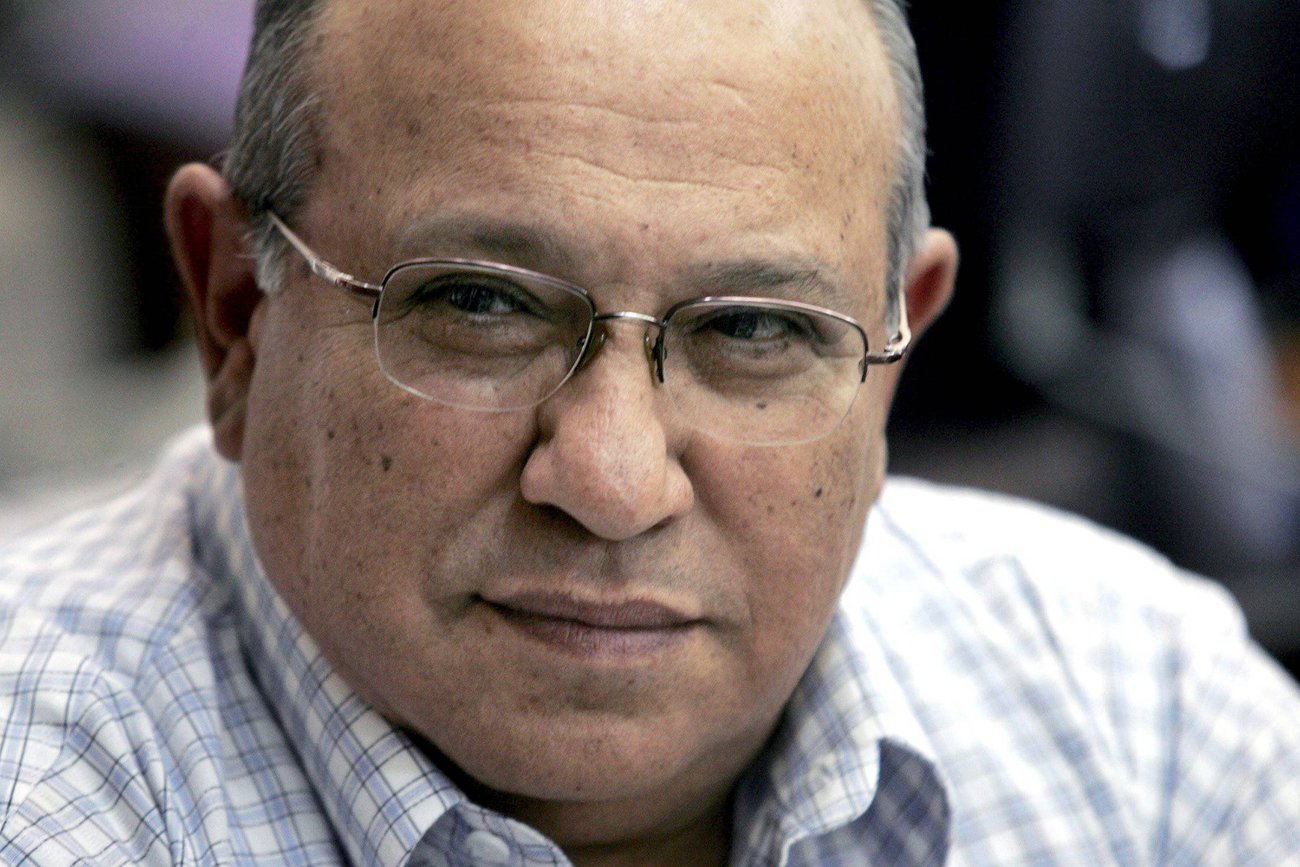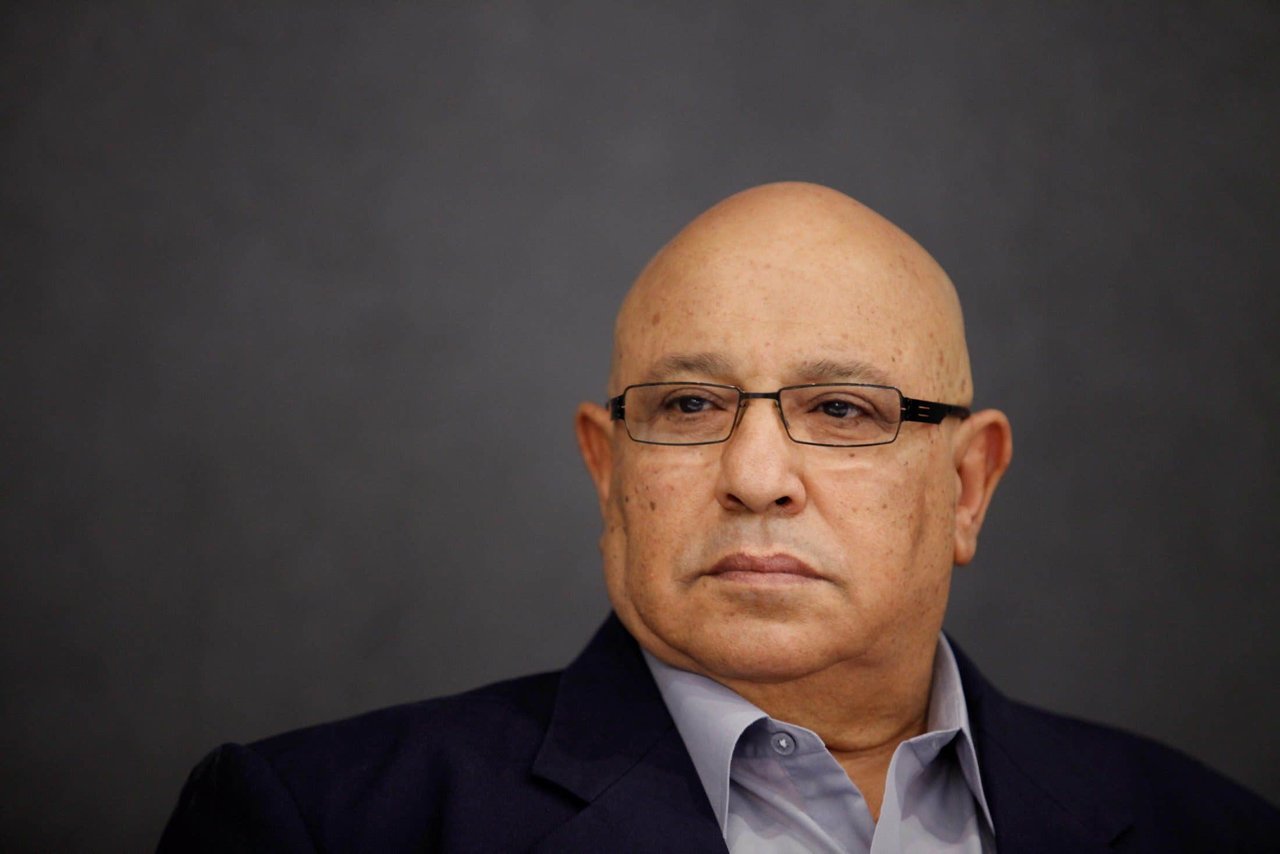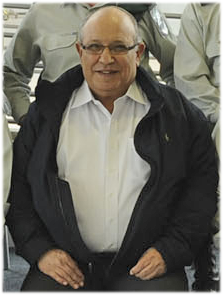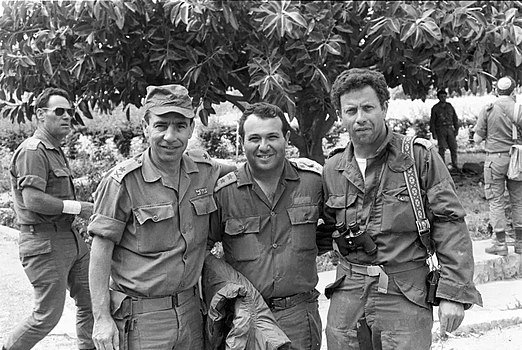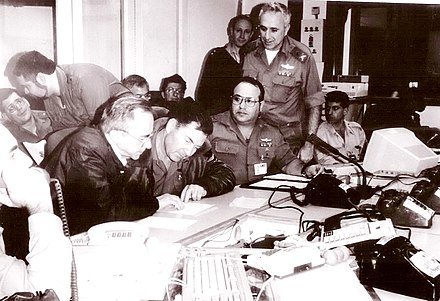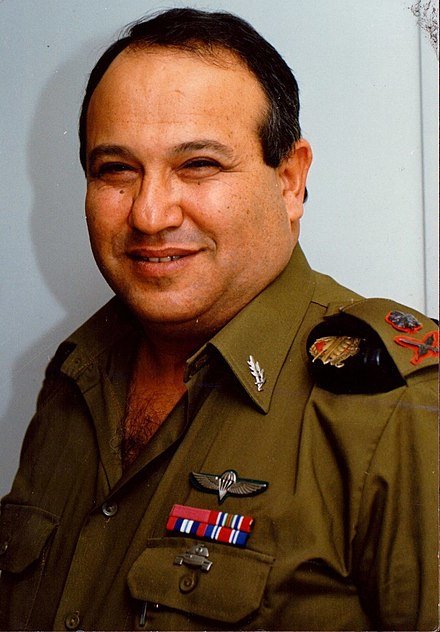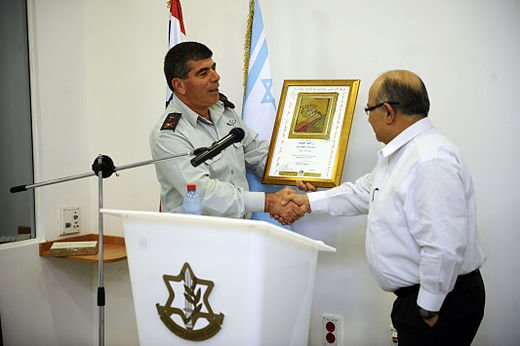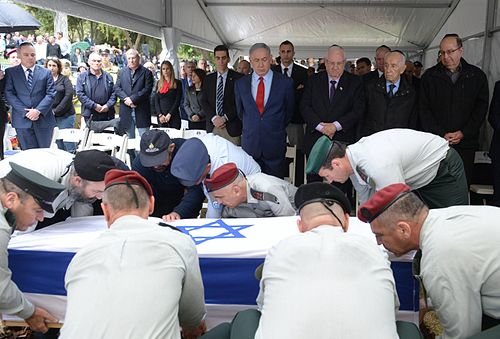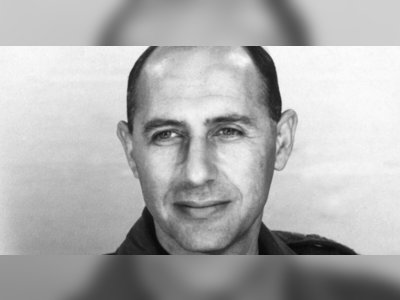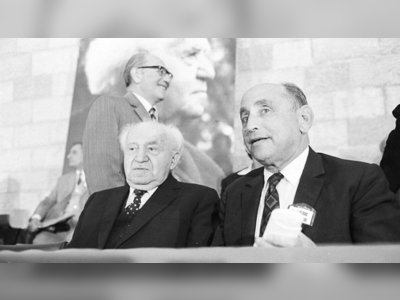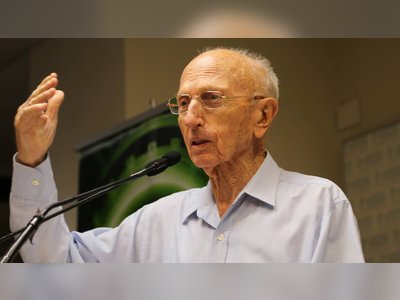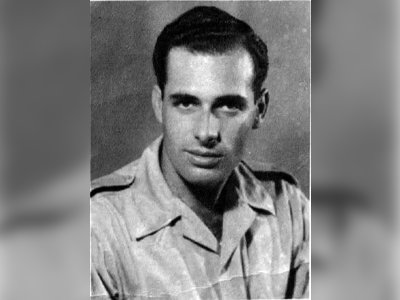מורשת גדולי האומה
בזכותם קיים
beta
Meir Dagan: A Life in Service
Meir Dagan was a prominent figure in Israeli military and intelligence circles, known for his dedication to safeguarding Israel's security and his leadership in various roles, including as the head of Mossad. His legacy is a subject of debate and discussion, with supporters highlighting his effectiveness in combating terrorism and advancing Israeli interests, while critics raise concerns about the methods employed during his tenure. Regardless of one's perspective, Meir Dagan's impact on Israel's security landscape is undeniable, and his life remains an important part of the country's history.
Meir Dagan (January 30, 1945 – March 17, 2016) was the head of the Mossad, Israel's national intelligence agency, and Special Operations from 2002 to 2011. Before his tenure at Mossad, he served in various security roles, reaching the rank of Aluf (Major General) in the Israel Defense Forces (IDF). Among his many achievements, he is renowned for establishing and commanding the Sayeret Rimon unit in the early 1970s, which played a crucial role in countering Palestinian terrorism in the Gaza Strip.
Early Life and Background
Meir Dagan, born as Meir Huberman, entered the world in a railway car in the Soviet Union on January 30, 1945, to parents who had fled Poland to escape Nazi persecution. His mother's father, Bar Arlich (Solshani), had tragically perished in the Holocaust. During his tenure as the head of Mossad, Dagan held a photograph in his office that he claimed depicted his grandfather being forced to ride on the back of another Jewish man, a humiliating act before he was ultimately shot by Nazi soldiers. However, Holocaust researcher Tzvi Korczak argued that the man forced to ride on the back of the Jewish victim was actually Isaac Werblowski, who was not a close relative of Dagan's family. Dagan's family immigrated to Israel in 1950, initially residing in the Israel immigrant camp in Lod and later settling in Bat Yam, where his parents ran a laundry business. Dagan was married to Bina and had three children.
Military Service
Dagan joined the IDF in 1963, starting his military career in the elite Sayeret Matkal unit but later volunteered for the Paratroopers Brigade, serving in its reconnaissance unit. He underwent rigorous training, including becoming a combat soldier and an intelligence officer. Dagan participated in operations against terrorists in the southern Hebron Hills and was released from regular service in November 1966 with the rank of Sgan Aluf (Lieutenant Colonel).
During the Six-Day War, he was called up to serve in the reserves and led a paratrooper platoon in battles in the Sinai Peninsula. Later in the war, he and his soldiers fought in the Golan Heights. After the war, he returned to regular service in the IDF and served as an operations officer in the Al Arish region. In 1970, he was appointed by Major General Ariel Sharon, then the Southern Command Chief, to establish the "Rimon" unit, a special unit tasked with combating Palestinian terrorism in the Gaza Strip. This unit served as an early model for later Israeli special forces units like Sayeret Shimshon, Duvdevan, and Yamam. The unit operated extensively in Gaza, with a focus on urban areas, working alongside the Shin Bet (Israel Security Agency) to locate, apprehend, and eliminate terrorists. For his actions, he was awarded the Medal of Valor in 1971.
The Heroic Incident
On January 29, 1971, Dagan led a convoy of jeeps between the Jabalia refugee camp and the city of Gaza. As they passed a taxi carrying local passengers, Dagan recognized a wanted terrorist known as "Abu Nimr" among the passengers. He ordered the convoy to stop and surrounded the taxi. Approaching the vehicle, Dagan opened the door and confronted Abu Nimr, who was seated in the front passenger seat next to the driver. Abu Nimr produced a hand grenade, threatened the soldiers, and said, "We will all die." Dagan shouted, "Grenade!" to alert his subordinates and engaged in a physical struggle with Abu Nimr to disarm him. After a brief struggle, Dagan successfully disarmed the terrorist and prevented the grenade from being detonated. Another terrorist was also discovered among the taxi passengers, and due to Dagan's actions, both dangerous individuals were captured. For his heroism, Dagan was awarded the Medal of Valor in April 1973.
Military Career and Achievements
In the Yom Kippur War, Dagan served on the southern front as part of a special reconnaissance unit within the Sharon Brigade under the command of his friend, Lieutenant Colonel Dani Rehav Wolff. This force included officers and soldiers from both the reserves and regular units, with many of them originating from Sayeret Shaked and the paratroopers who were not in designated roles before the war. They assembled into an ad-hoc brigade under Dagan's leadership.
In 1980, Dagan replaced Yoram Mizrachi as the commander of the IDF Southern Lebanon Regional Command (Al Adel) and, in November 1981, was succeeded by Ephraim Sneh.
During Operation Peace for the Galilee (the 1982 Lebanon War), Dagan commanded Brigade 188, also known as "Barak," and later became the commander of the Liaison Unit for Lebanon (Yakal). As the Yakal commander, he established the South Lebanon Army (SLA) under the leadership of Brigadier General Saad Haddad, in coordination with the Lebanese government. In this capacity, he oversaw all aspects of Israeli operations in Lebanon, from intelligence gathering to coordination with various stakeholders.
Dagan then learned about the activities of the IDF's 504 Unit, part of the Intelligence Corps, which operated agents. He established a similar branch within Yakal to collect intelligence and run agents. In 1991, he was appointed as the Chief of Staff's advisor on counter-terrorism matters. In 1992, he became the head of the General Staff Branch at the rank of Aluf. Throughout his military career, he was injured twice. In 1995, Dagan retired from the IDF and embarked on a jeep expedition in Central Asia with his friend, Brigadier General Yossi Ben-Hanan. In 1996, he returned to public service when Prime Minister Shimon Peres appointed him to work alongside Ami Ayalon as his deputy in the battle against terrorism, a role he carried out concurrently with his position as head of the Shin Bet. When Benjamin Netanyahu assumed office as Prime Minister in mid-1996, Dagan initially served as head of the IDF's General Staff and held this position until mid-1999, simultaneously serving in the reserves as commander of the Northern Command.
Dagan held a bachelor's degree in political science from the University of Haifa.
In 2000, Dagan joined a group of individuals opposing the withdrawal from the Golan Heights and became affiliated with the Likud party. In the 2001 elections, Dagan, along with Knesset member Uzi Landau, led Prime Minister Ariel Sharon's election campaign. Sharon subsequently appointed him to head a division in the Prime Minister's Office aimed at countering the funding sources of terrorist organizations.
On September 10, 2002, Prime Minister Ariel Sharon announced Dagan's appointment as the head of the Mossad, replacing Ephraim Halevy. Dagan served in this role until the end of 2010, with his tenure extended twice. His leadership at Mossad was widely regarded as successful, and his skills, creativity, and achievements were praised both domestically and internationally, including by Arab entities.
Legacy and Contributions
During Dagan's leadership, the Mossad carried out several high-profile assassinations of senior terrorists, particularly those involved in planning and executing attacks against Israeli targets. These operations included the elimination of Imad Mughniyah, a top Hezbollah operative, and Mahmoud al-Mabhouh, a senior Hamas figure.
Dagan also emphasized the importance of intelligence collection, covert operations, and cyber warfare. Under his leadership, the Mossad is believed to have played a key role in tracking and disrupting Iran's nuclear program, using a combination of cyberattacks, espionage, and other clandestine methods.
In addition to his focus on counterterrorism and intelligence operations, Dagan advocated for the development of Israel's capabilities in the fields of cyber warfare and technological innovation.
Meir Dagan's tenure as the head of Mossad was marked by controversy and criticism, particularly regarding the use of assassination as a counterterrorism tool. Some critics argued that his aggressive approach risked further escalating conflicts in the Middle East.
Post-Retirement and Passing
After retiring from the Mossad in 2010, Dagan continued to express his views on Israeli security policy. He publicly criticized the Israeli government's stance on various issues, including its approach to negotiations with the Palestinians and its posture toward Iran's nuclear program.
In April 2012, Dagan underwent a liver transplant in Belarus, which was conducted with great secrecy. This procedure was necessitated by a severe medical condition, reportedly related to cancer. After the successful transplant, Dagan continued to be active in public discourse, including participating in panel discussions and interviews.
On March 17, 2016, Meir Dagan passed away at the age of 71. His death was attributed to complications related to his liver transplant. His passing was met with widespread condolences and recognition of his significant contributions to Israeli security and intelligence.
Early Life and Background
Meir Dagan, born as Meir Huberman, entered the world in a railway car in the Soviet Union on January 30, 1945, to parents who had fled Poland to escape Nazi persecution. His mother's father, Bar Arlich (Solshani), had tragically perished in the Holocaust. During his tenure as the head of Mossad, Dagan held a photograph in his office that he claimed depicted his grandfather being forced to ride on the back of another Jewish man, a humiliating act before he was ultimately shot by Nazi soldiers. However, Holocaust researcher Tzvi Korczak argued that the man forced to ride on the back of the Jewish victim was actually Isaac Werblowski, who was not a close relative of Dagan's family. Dagan's family immigrated to Israel in 1950, initially residing in the Israel immigrant camp in Lod and later settling in Bat Yam, where his parents ran a laundry business. Dagan was married to Bina and had three children.
Military Service
Dagan joined the IDF in 1963, starting his military career in the elite Sayeret Matkal unit but later volunteered for the Paratroopers Brigade, serving in its reconnaissance unit. He underwent rigorous training, including becoming a combat soldier and an intelligence officer. Dagan participated in operations against terrorists in the southern Hebron Hills and was released from regular service in November 1966 with the rank of Sgan Aluf (Lieutenant Colonel).
During the Six-Day War, he was called up to serve in the reserves and led a paratrooper platoon in battles in the Sinai Peninsula. Later in the war, he and his soldiers fought in the Golan Heights. After the war, he returned to regular service in the IDF and served as an operations officer in the Al Arish region. In 1970, he was appointed by Major General Ariel Sharon, then the Southern Command Chief, to establish the "Rimon" unit, a special unit tasked with combating Palestinian terrorism in the Gaza Strip. This unit served as an early model for later Israeli special forces units like Sayeret Shimshon, Duvdevan, and Yamam. The unit operated extensively in Gaza, with a focus on urban areas, working alongside the Shin Bet (Israel Security Agency) to locate, apprehend, and eliminate terrorists. For his actions, he was awarded the Medal of Valor in 1971.
The Heroic Incident
On January 29, 1971, Dagan led a convoy of jeeps between the Jabalia refugee camp and the city of Gaza. As they passed a taxi carrying local passengers, Dagan recognized a wanted terrorist known as "Abu Nimr" among the passengers. He ordered the convoy to stop and surrounded the taxi. Approaching the vehicle, Dagan opened the door and confronted Abu Nimr, who was seated in the front passenger seat next to the driver. Abu Nimr produced a hand grenade, threatened the soldiers, and said, "We will all die." Dagan shouted, "Grenade!" to alert his subordinates and engaged in a physical struggle with Abu Nimr to disarm him. After a brief struggle, Dagan successfully disarmed the terrorist and prevented the grenade from being detonated. Another terrorist was also discovered among the taxi passengers, and due to Dagan's actions, both dangerous individuals were captured. For his heroism, Dagan was awarded the Medal of Valor in April 1973.
Military Career and Achievements
In the Yom Kippur War, Dagan served on the southern front as part of a special reconnaissance unit within the Sharon Brigade under the command of his friend, Lieutenant Colonel Dani Rehav Wolff. This force included officers and soldiers from both the reserves and regular units, with many of them originating from Sayeret Shaked and the paratroopers who were not in designated roles before the war. They assembled into an ad-hoc brigade under Dagan's leadership.
In 1980, Dagan replaced Yoram Mizrachi as the commander of the IDF Southern Lebanon Regional Command (Al Adel) and, in November 1981, was succeeded by Ephraim Sneh.
During Operation Peace for the Galilee (the 1982 Lebanon War), Dagan commanded Brigade 188, also known as "Barak," and later became the commander of the Liaison Unit for Lebanon (Yakal). As the Yakal commander, he established the South Lebanon Army (SLA) under the leadership of Brigadier General Saad Haddad, in coordination with the Lebanese government. In this capacity, he oversaw all aspects of Israeli operations in Lebanon, from intelligence gathering to coordination with various stakeholders.
Dagan then learned about the activities of the IDF's 504 Unit, part of the Intelligence Corps, which operated agents. He established a similar branch within Yakal to collect intelligence and run agents. In 1991, he was appointed as the Chief of Staff's advisor on counter-terrorism matters. In 1992, he became the head of the General Staff Branch at the rank of Aluf. Throughout his military career, he was injured twice. In 1995, Dagan retired from the IDF and embarked on a jeep expedition in Central Asia with his friend, Brigadier General Yossi Ben-Hanan. In 1996, he returned to public service when Prime Minister Shimon Peres appointed him to work alongside Ami Ayalon as his deputy in the battle against terrorism, a role he carried out concurrently with his position as head of the Shin Bet. When Benjamin Netanyahu assumed office as Prime Minister in mid-1996, Dagan initially served as head of the IDF's General Staff and held this position until mid-1999, simultaneously serving in the reserves as commander of the Northern Command.
Dagan held a bachelor's degree in political science from the University of Haifa.
In 2000, Dagan joined a group of individuals opposing the withdrawal from the Golan Heights and became affiliated with the Likud party. In the 2001 elections, Dagan, along with Knesset member Uzi Landau, led Prime Minister Ariel Sharon's election campaign. Sharon subsequently appointed him to head a division in the Prime Minister's Office aimed at countering the funding sources of terrorist organizations.
On September 10, 2002, Prime Minister Ariel Sharon announced Dagan's appointment as the head of the Mossad, replacing Ephraim Halevy. Dagan served in this role until the end of 2010, with his tenure extended twice. His leadership at Mossad was widely regarded as successful, and his skills, creativity, and achievements were praised both domestically and internationally, including by Arab entities.
Legacy and Contributions
During Dagan's leadership, the Mossad carried out several high-profile assassinations of senior terrorists, particularly those involved in planning and executing attacks against Israeli targets. These operations included the elimination of Imad Mughniyah, a top Hezbollah operative, and Mahmoud al-Mabhouh, a senior Hamas figure.
Dagan also emphasized the importance of intelligence collection, covert operations, and cyber warfare. Under his leadership, the Mossad is believed to have played a key role in tracking and disrupting Iran's nuclear program, using a combination of cyberattacks, espionage, and other clandestine methods.
In addition to his focus on counterterrorism and intelligence operations, Dagan advocated for the development of Israel's capabilities in the fields of cyber warfare and technological innovation.
Meir Dagan's tenure as the head of Mossad was marked by controversy and criticism, particularly regarding the use of assassination as a counterterrorism tool. Some critics argued that his aggressive approach risked further escalating conflicts in the Middle East.
Post-Retirement and Passing
After retiring from the Mossad in 2010, Dagan continued to express his views on Israeli security policy. He publicly criticized the Israeli government's stance on various issues, including its approach to negotiations with the Palestinians and its posture toward Iran's nuclear program.
In April 2012, Dagan underwent a liver transplant in Belarus, which was conducted with great secrecy. This procedure was necessitated by a severe medical condition, reportedly related to cancer. After the successful transplant, Dagan continued to be active in public discourse, including participating in panel discussions and interviews.
On March 17, 2016, Meir Dagan passed away at the age of 71. His death was attributed to complications related to his liver transplant. His passing was met with widespread condolences and recognition of his significant contributions to Israeli security and intelligence.
- מאיר דגן – ויקיפדיהhe.wikipedia.org
